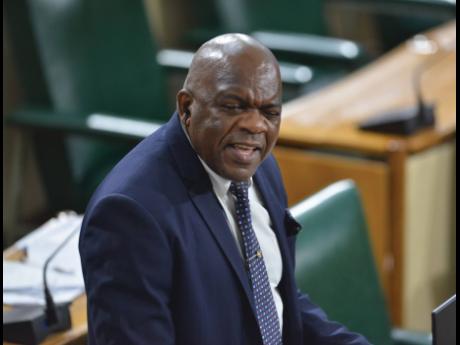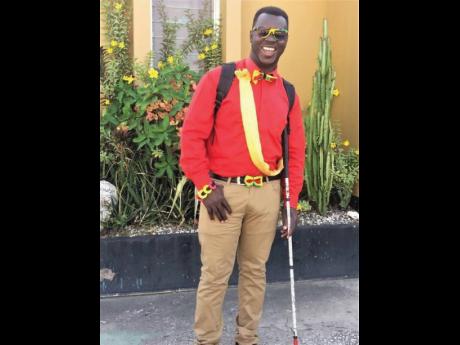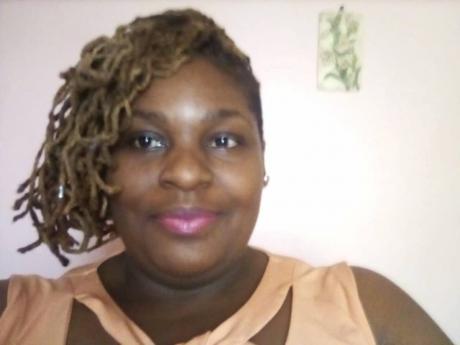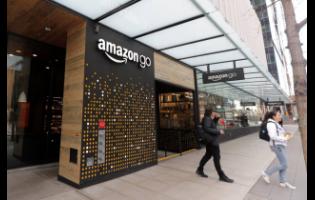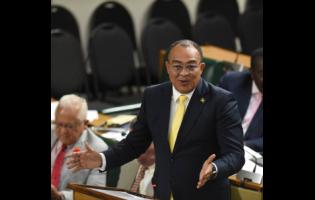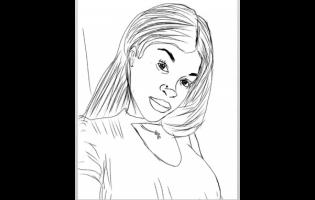How a blind man became St Mary’s largest chicken farmer - Senator Morris shares his story as persons with disability get business guidance
Despite being blind, Senator Dr Floyd Morris made the bold decision to start a business, doing so with the knowledge that the journey would not be easy.
"Persons with disabilities can venture in businesses that can gain income, rather than sitting down at home and waiting for 9-5 employment to come.
"I got blind in 1989 and at the time there wasn't anything for me to do at home. I wondered what was going to happen to me if my mother should leave the stage, and how is it I was going to get an income for me to survive. I decided I was going to start a small poultry business and when I started out there were a lot of negative vibrations," Morris said.
"People were saying how you as a blind man going to raise chicken, who is going to help you? And people were going to steal the chickens. I remember the first time I was going to buy 50 chickens, I never had the capital for myself, I had to depend on my aunt in Canada to give me the first start," he said.
Morris said that the man he asked to buy the 50 chickens gave him only 33 chickens.
"People were saying we told you already, they were going to steal the chickens. But nonetheless, I pressed on with those 33 and it did extremely well in the first instance. The monies I generated from the chickens, I opened an account with a credit union with the profit. And so, I started to move up with the chickens, starting from 50 to 100," he said.
Morris said he was able to expand his business, and become the largest poultry rearer in St Mary, having 1,500.
ENTREPRENEURSHIP PROGRAMME
Morris, the director at the Centre for Disability Studies at The University of the West Indies, shared his personal experience of being an entrepreneur who is visually impaired with participants in an entrepreneurship programme that was launched on Wednesday. The programme is aimed at providing an opportunity for members of the disabled community. He encouraged the participants that challenges may arise but they should not become daunted.
Conceptualiser Daemion McLean said the First Steps In Entrepreneurship Programme will give participants an opportunity to display their entrepreneurial skills and to create a network to help propel their businesses. The programme has 10 participants who are seeking to improve their businesses and to conceptualise new business ideas.
"It's a series of seminars that will take place over a three-month period, where we'll be working on different aspects of business plans preparations. We'll also teach them how to prepare an elevated pitch so they can sell their businesses to persons immediately," said McLean, owner of Inspire Training Solutions, the company behind the initiative.
Two participants, Mickael Graham and Shavain Daley, have high expectations. Daley is the owner of Entertainment Trail, a public relations and artiste management company. The self-dubbed 'blind cultural practitioner' decided to venture into entrepreneurship as he believes the disabled are often left behind.
"We are not able to get full employment and I'm a creative individual, so I always try to do stuff for myself, so I decided to launch my business. Being a part of this programme will give me the leverage to gain a profit from my business," Daley said.
Graham, who is affected with chronic arthritis, operates MG Motivation and the Writing Lab, and expects the 13-week programme will help her develop a clear-cut business plan and build her brand better.
DIFFICULT JOURNEY
"COVID-19 has affected my business, where I lost all my income fuel. I've moved from persons interested in starting contracts with me and persons having no source of income so we couldn't move forward. It's been a difficult journey but I've gotten time to recap and I'm feeling encouraged to start the entrepreneurship programme," Graham said.
The Montego Bay High School for Girls graduate believes more can be done to support the disabled community.
"We need not just the administrative support but we actually need the financial support. We need persons to buy in and use our services. We are valuable persons of society, too, and we have what there is to offer," she said.
The Ministry of Labour and Social Security reported in 2018 that 85 per cent of people living with disabilities were unemployed. McLean, who lost his sight at the age of 12, is among the small portion of persons with disability gainfully employed.






























